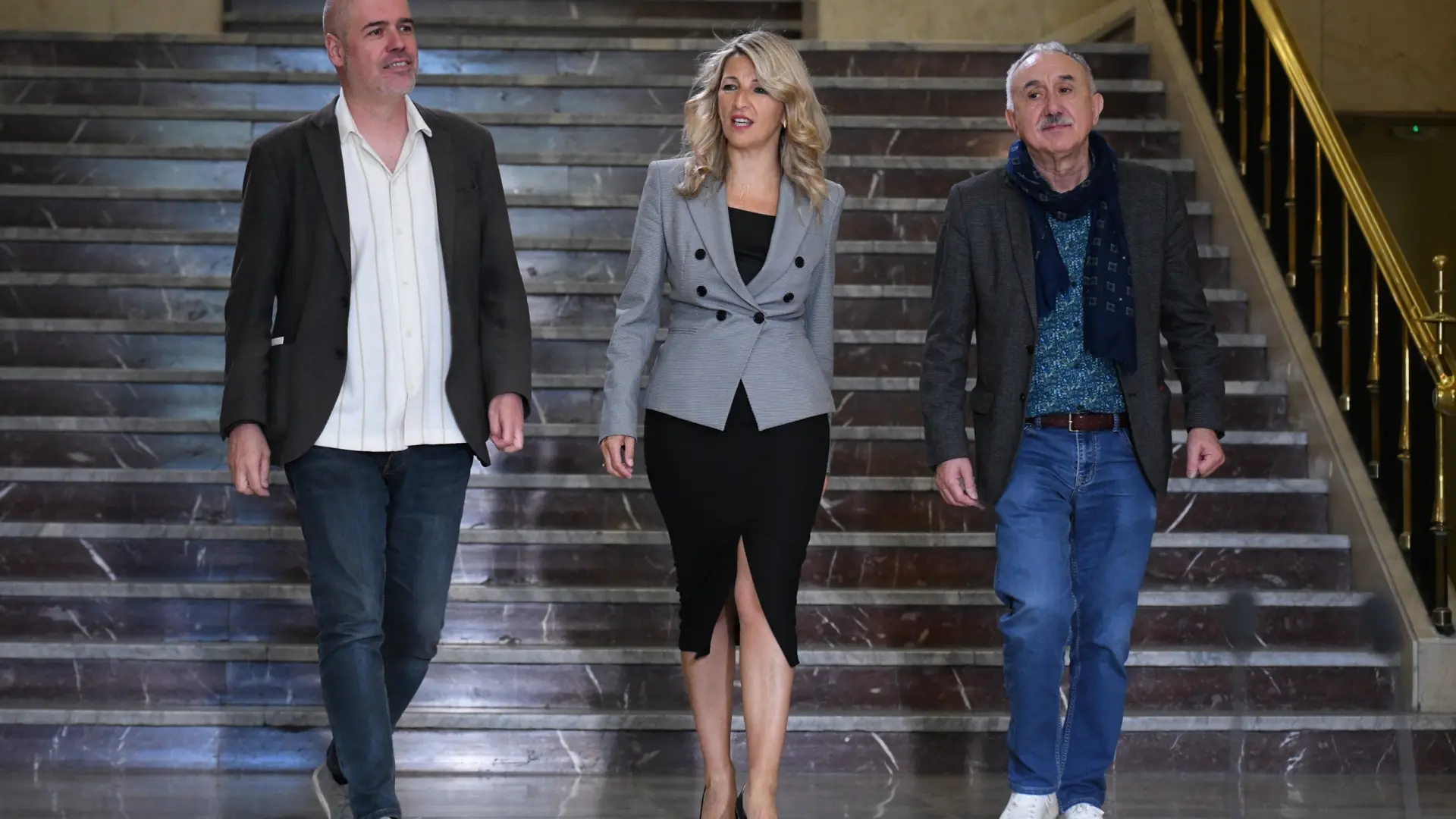Unions ask the Government to make a move on the reduction of the working day working day to the 37.5 hours a week promised by PSOE and Sumar in the government agreement. CCOO y UGT believe that the rejection of CEOE and Cepyme officialized this Tuesday to the proposal for a tripartite agreement put on the table by the Ministry of Labor has not been a “surprise” and they urge the Executive to finish off the cut in working time as soon as possible.The second challenge will be to ensure that the reduction of working hours does not get bogged down in Congress. In order to pave the political ground, the unions are announcing a round of contacts with the different parties starting next week to try to build enough parliamentary support to move the measure forward.
After the refusal of CEOE and Cepyme, the secretary general of CCOO, Unai Sordohas pointed out this Thursday that does not see “complicated” to close a bipartite agreement with the Ministry of Work in the next few days to finalize the negotiation of the reduction of working hours. The contacts between the Executive and the social agents to materialize the cut in working time began in January. Ten months later, the Ministry of Labor gave an ultimatum last week: put its “last offer” on the table and asked for a definitive “yes or no” to employers and unions before next Monday. While CCOO and UGT have always been in favor of the agreement, the employers have made their reticence clear throughout the negotiation and made their rejection official this Tuesday.
“The CEOE has been taking the piss, not from the unions and the government, but from Spanish society”.for a year and a half,” said the secretary general of the UGT on Thursday, Pepe ÁlvarezPepe Álvarez, who has assured that “all possible elements have been put in place so that a consensus could have been reached with the employers” but, in his opinion, the businessmen “did not want to reach an agreement”. “It was foreseeable, we had been hearing for some time that the meetings were being a kind of permanent blockade by CEOE, and that it was more or less obvious that CEOE was not going to negotiate in a tripartite agreement the reduction of working hours”, agreed Sordo, in statements to the media on his arrival at a conference on autonomous bodies for conflict resolution.
With the employer’s side out of the negotiation, the Executive has stressed its willingness to move forward only with the unions. In this regard, Álvarez has asked the government not to make “any type of concession” to the employers. The latest proposal put on the table by the Ministry of Labor includes direct aid and tax rebates to small and medium-sized companies affected by the reduction of working hours, something that was intended to curry favor with CEOE and Cepyme. However, the Secretary of State for Labor himself, Joaquín Pérez Rey, recognized that the proposal may undergo changes to reach an agreement alone with the unions. “We will have to establish some measures in the text that will accommodate what the trade union organizations are asking for,” he said on Tuesday.
The stumbling block of Congress
Following the eventual agreement between the government and trade unions to reduce the working week to a legal maximum of 37.5 hours per week, the agreed text will have to be approved in Congress. Congresswhere it remains to be seen whether it has sufficient support. “The ball is going to be in the political realm.”acknowledged the secretary general of CCOO. “We will have to identify the position of the parties,” he added.
In this sense, his counterpart from UGT has assured that from the trade union organizations will do “everything possible” to “achieve a majority in Parliament”. as broad as possible to support the demands of the trade union organizations to move towards 37.5 hours”. Specifically, the unions have announced that as of Monday they will begin to meet with the different political groups, with the aim of smoothing out the parliamentary processing of the reduction of the working day.
At the same time, Álvarez has pointed out the need also to activate workers. “Our delegates have to be the voice in the companies that generate the conditions so that the deputies in Congress know that voting against the reduction of working time, after 40 years without moving it, will have a cost before the voters,” he warned. Along these lines, Sordo has warned that, in the event that the parliamentary process is blocked, “with all certainty, when the weeks go by” the unions will also go to a process of mobilization. towards the end of the year.



